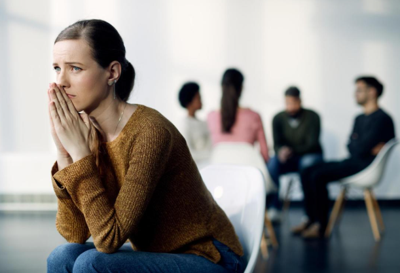
At our core, we're social beings. Our fitness and happiness are regularly connected to our relationships with other human beings. But in a society, this is turning into more and more related; it might be hard to find a real connection. This paradox can motivate a sneaky but dangerous form of pressure known as isolation tension. Isolation anxiety can sneak up on you and make you feel like you are in danger while you depart the protection of your private home. It often occurs with or worse with situations like agoraphobia, that may make leaving the safety of your private home appear to be a terrible notion. It's genuinely crucial to notice these early indicators so you can deal with the trouble before it gets worse.
The Gnawing Unease: More Than Just Loneliness
A constant, low-grade feeling of unease, even while you're with other people, is one of the first and most typical signs of isolation anxiety. It's not just a passing feeling of loneliness; it's a deeper, more widespread sense of disconnection. You may be at a party and still feel completely alone. This can show itself as a deep grief or a vague feeling of dread that something is missing, even if you can't put your finger on what it is.
The Social Performance: Masking the Void
When you start to feel anxious about being alone, you could start to act out in social situations. This means putting forth more effort to look "normal" or "happy" in social circumstances, typically to hide the internal struggle. You might overcompensate by talking too much, agreeing too much, or always looking for outside approval. This isn't real involvement; it's a desperate attempt to fit in and not let people know how alone you feel. The tiredness that comes after these kinds of performances can be very strong, which makes the want to withdraw even stronger.
The Phantom FOMO and Digital Overload
Ironically, concern over being alone can make Fear of Missing Out (FOMO) worse, especially when it comes from social media. You might want to connect with other people, but your anxiety can make it hard to do so in real life. Instead, you can spend hours reading through social media feeds, looking at other people's supposedly perfect lives, which only makes you feel more inadequate and disconnected. This can cause digital overload, where your main way of "socialising" is by passively consuming online content. This makes it much harder to tell the difference between real connection and shallow involvement.
The Declining Initiative: Avoiding Opportunities
A big warning signal is when you stop wanting to do things with other people, even things you used to enjoy. You used to be delighted about invitations, but now they make you scared or indifferent. You can start finding reasons to not go to events, or you might just not have the energy or desire to go. It's not laziness; it's the fear telling you that the work isn't worth the possible pain, which keeps you from doing it.
The Physical Manifestations: Body's Distress Signals
Lastly, physical signs can show that someone is anxious about being alone. These are signs that something is wrong with your body. You may feel more irritable, have trouble concentrating, have trouble sleeping (either too much or too little), or even have physical problems like headaches or stomach aches. These symptoms that don't seem to be related to each other are typically caused by the stress of feeling alone and detached.
The first step in dealing with isolation anxiety is to notice these small but important signals. It can progressively take over your life, like a spreading vine, making it harder and harder to connect with other people, especially if you have disorders like agoraphobia. If you can relate to these indicators, remember that asking for help from friends, family, or a mental health professional is a sign of strength, not weakness. To get over isolation anxiety, you have to make a conscious effort and promise to get back in touch with the world and the people in it.


(0) comments
We welcome your comments
Log In
Post a comment as Guest
Keep it Clean. Please avoid obscene, vulgar, lewd, racist or sexually-oriented language.
PLEASE TURN OFF YOUR CAPS LOCK.
Don't Threaten. Threats of harming another person will not be tolerated.
Be Truthful. Don't knowingly lie about anyone or anything.
Be Nice. No racism, sexism or any sort of -ism that is degrading to another person.
Be Proactive. Use the 'Report' link on each comment to let us know of abusive posts.
Share with Us. We'd love to hear eyewitness accounts, the history behind an article.